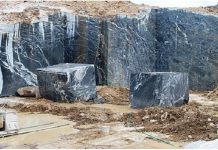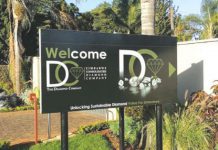Mutare: Zimbabwe should clean its record in the mining of diamonds so that it does not lose its world`s market share to synthetic diamonds now being grown in laboratories, the Zimbabwe Environmental Lawyers Association (ZELA) said recently.
A synthetic diamond, also known as laboratory grown diamond, cultured diamond or cultivated diamond, is produced by a controlled process, as contrasted with natural diamond created by geological processes or imitation diamond made of non-diamond material that appears similar to diamond.
ZELA deputy director and Kimberly Process (KP) Civil Society Coalition focal point person, Shamiso Mtisi told an All Stakeholders Diamond Indaba held in Mutare recently that there was need for the Zimbabwe Consolidation Diamond Company (ZCDC) to deal with the legacy issues to ensure that Marange diamonds were certified clean as required by the Kimberly Process Certification Scheme (KPCS) so that they are marketable.
“Now there is a generation which relies on internet for information about everything including diamonds. The information they want is about the ethical sources, where these diamonds are coming from.
“If they read that they (diamonds) are tainted and there are accusations of human rights abuses and environmental mismanagement and so on, this generation will not buy the diamonds. They will prefer synthetic diamonds which are lab grown.
“We are producing rough diamonds so you will see they will opt for those manufactured in the laboratory. I hope you will understand where I am coming from and this means the country stands to lose,” warned Mtisi.
He said this is a challenge for ZCDC, government and other players within civil society to work towards cleaning of the local diamonds.
He said as ZELA, they were willing to partner with ZCDC to train its security, State security, management and board on how to make the diamond have a clean record.
“We have carried a lot of research and we discovered that some of the problems we face in Zimbabwe are not unique to us. Our research indicates that there are environmental problems in Lesotho, Tanzania as well, DRC, Sierra Leone. It’s across the world.
“These problems must be addressed by diamond industry because there are also illegalities in the sector. KP has come up with system of warrant to make sure that companies take responsibility in the sourcing of diamonds and conduct best practices of eliminating human rights violations in the system, eliminate environmental damage and put in place other measures to ensure diamonds are clean,” said Mtisi.
He said countries such as United State of America (USA) were now protective of their industry and consumers.
“You remember a few weeks ago, US issuing a statement on Zimbabwe, DRC and China. This is all about consumer protection. They also issued a statement early this year which was saying their industry would stop certain products from a country with records of violation of human and environmental rights.
“It is important for us to see how we can make our diamonds clean and how ZCDC enhance its traceability, improve on human rights compliance, revenue management practices, Corporate Social Responsibility (CSR) across the value chain.
He said a Russian diamond miner Alrosa was coming to Zimbabwe with a view to promoting responsible investment, adding that ZCDC should not be lagging behind as they were partnering an international brand.






